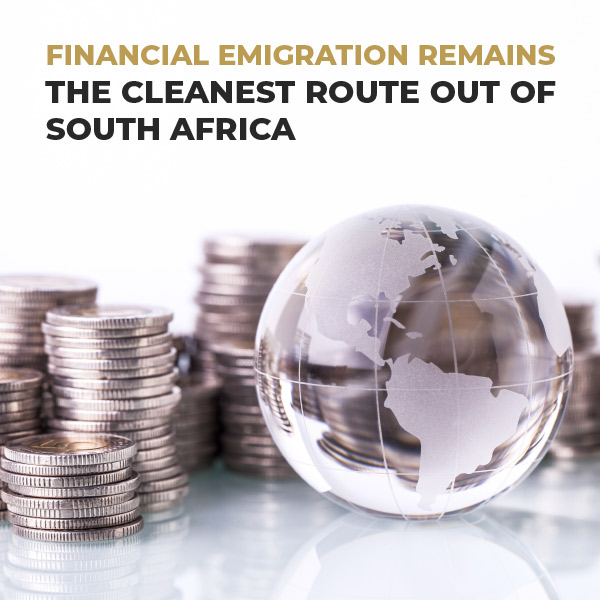FINANCIAL EMIGRATION REMAINS THE CLEANEST ROUTE OUT OF SOUTH AFRICA
The process of financial emigration, which is the process that allows a taxpayer to formally place themselves on record as a non-resident for tax purposes with the South African Revenue Service (SARS), recently changed and came into effect on 1 March 2021.
Jonty Leon, Legal Manager (Expatriate Tax) at Tax Consulting South Africa, says the company has seen an increased volume of inquiries regarding the benefits of financial emigration, the new process, as well as the timelines involved in financial emigration.
“The advantage of financial emigration is that it allows you to cleanly cease tax residency of SA, ensuring your foreign income and foreign assets are ring-fenced outside of SARS’ jurisdiction. Financial emigration used to be a tax and exchange control process, but the new process means that financial emigration has become solely a tax process. The exchange control process created an additional set of administrative challenges with financial institutions, which is no longer the case. Under the new financial emigration regime, there are no disadvantages for those who intend to reside outside of the country permanently,” says Leon.
In-depth audits and proving non-residency
As SARS will no longer be able to tax an individual on their worldwide income and assets once they have ceased tax residency of SA, the institution has ramped up its collection power to ensure the taxpayer has truly met the requirements to cease tax residency. This translates to more in-depth audits from SARS to ensure these taxpayers meet the criteria of non-residency.
“For many years, South Africans abroad have flown under the radar. Many expats are still of the opinion that they are no longer liable to pay tax in South Africa if they have been abroad for many years. It is important to note that the process is not automatic, and the burden of proof always lies with the taxpayer. SARS now has a team dedicated to investigating and recovering tax from South Africans abroad who have not ceased their tax residency in South Africa,” says Leon.
Steps involved in financial emigration
The individual seeking financial emigration must be entirely up to date and compliant with SARS. This compliance extends to any South African trusts or companies that they are linked to, which must also be fully up to date and compliant.
The taxpayer must then pass two tests to determine tax residency outside of South Africa, namely the Physical Presence test and the Ordinarily Resident test.
After this, they can submit an application with full supporting documentation to SARS for an Emigration Tax Clearance Certificate. The application will include an “exit tax” that is calculated on certain worldwide assets as well as a declaration of all South African assets and liabilities. Only once this has been audited and approved by SARS can the taxpayer consider themselves a non-resident for tax purposes.
Leon concludes by advising people to partner with a reputable tax advisory firm with experienced, admitted attorneys in their team. “Taxpayers must follow the most transparent, formal route to financially emigrate to ensure a taxpayer can overcome their burden of proof when ceasing tax residency.”
Source: FA News
![2025-logo-[Recovered] Tax Consulting South Africa](https://www.taxconsulting.co.za/wp-content/uploads/2025/01/2025-logo-Recovered.png)




